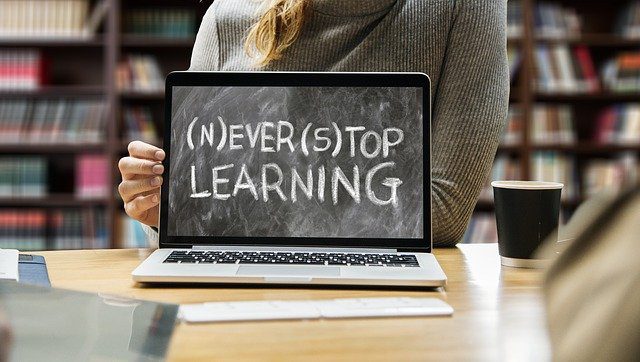It’s fair to say that all of us have done a lot of learning in our time. Whether during our school years, at university, or on the job. But what many people may not have done as much is lifelong learning.
If you’re one of the many people who has neglected lifelong learning, we’ve broken down what it is, why it’s important, and how you can start below.
Table of Contents
What is lifelong learning?
Broadly speaking, lifelong learning is a form of self-initiated and self-directed learning based on personal development. Although there is no one-size-fits-all approach to lifelong learning, it’s normally thought to be learning outside a traditional setting such as a school, college, or university.
Some examples of lifelong learning could include attending a class or course or learning new skills from the comfort of your own home.
Why is lifelong learning important?
So, we’ve established what lifelong learning is. But why is it so important?
Well, there are plenty of reasons. Firstly, it can be good for your mental health. By learning a new skill, you’ll feel fulfilled and have a sense of achievement, which can do wonders for your mental health. And with 1 in 4 people in the UK experiencing a mental health problem each year, it’s not to be understated!
Lifelong learning can also help boost your career development. By learning new skills, you may be able to progress faster or even branch out into different departments that are better suited to your new skillset. So, if you’re one of the one in three Brits who are unhappy at work, you may be able to head to work with a spring in your step, thanks to lifelong learning.
If that wasn’t enough, lifelong learning could also help you change your perspective, boost your productivity and gain confidence at the same time.
Some skills you could try as part of your lifelong learning masterplan
If you’re sold on the benefits of lifelong learning, you may be wondering what to learn first. The best thing to do is start with something you are interested in. After all, it’s far easier to learn something that you’re engaged and interested in, especially as you’ll be learning in your spare time.
Some ideas could be:
- Coding – A highly in-demand skill. If you’re good at problem-solving and logical thinking, why not give coding a go? You could start learning to code by trying out small projects before tackling more daunting tasks. To help you become an expert in no time, plenty of computer starter kits make learning to code fun.
- Learn a language – A great way to keep stimulated is by learning another language. It keeps your brain sharp, but it can also come in handy next time you’re on holiday!
- Learn to play an instrument – If you’re creative and enjoy listening to music, why not go one step further and learn how to play some of your favorite songs? Whether you learn the piano, guitar, or something as simple as the recorder, you’ll give yourself a challenge that you can keep refining.
Final thoughts…
Although many of us think that learning stops at school, it shouldn’t! If you’d like to keep your brain sharp, enhance your productivity, and grow your confidence, why not engage in some lifelong learning?
Featured Image by Gerd Altmann from Pixabay




